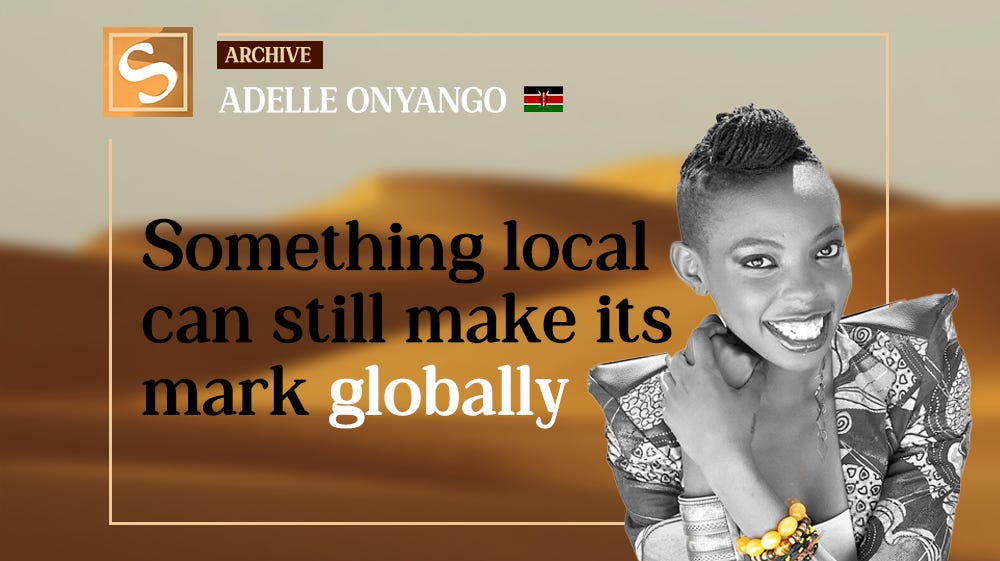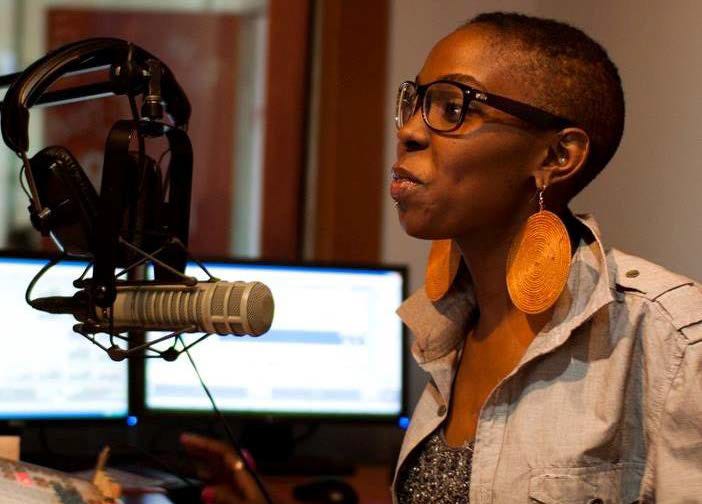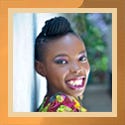Adelle Onyango: Musicians don’t have to sacrifice local identity to go global
Can you truly connect with audiences across the world even if they don't understand a word you're saying?
Not so long ago I would have stressed the importance of African artistes incorporating the English language into their music if they wanted it to break into international markets.
I soon realised the flaw in my logic when I looked at my own taste in music and realised that, as an English and Swahili-speaking Kenyan, I still love kwaito music from South Africa, which is normally performed in Zulu – this despite me having absolutely no idea what was being said!
The lack of comprehension doesn’t stop me from listening to kwaito. (Although not strictly kwaito), how many of you have heard Khona by Mafikizolo?
And now, hand on heart, how many of you (non-Zulu speakers) actually understand what it’s about?
Exactly. And it almost doesn’t matter…
If I wanted to take the extra step of finding out what the lyrics mean, I could always do that online. But the success of such songs illustrates that, even in today’s globalised world, creating an international hit song in Africa doesn’t require you to sing in English.
Good music should make you feel, as well as think. That way, even if you can’t think about what is being said, you can still feel it.
It’s also about making sure that you develop a strong brand – especially online, because that’s where you’re accessible to the whole world – such that, if someone really likes the sound of your song, they will find a way to figure out what you’re talking about, or fans will collaborate to translate.
Music from Africa has a distinctive sound and that’s a good thing. That distinctiveness might come from the language, or the beat, the melodies, or the harmonies.
It is entirely possible for a song to have a European house beat, but if the vocal track is sung in a local African language that is enough to change the sound from euro house to afro house.
We could play around with the language, or even what we sing about and how we translate those concepts through music. Love is a universal theme, but it can be explored through music in its local context.
A song about a boy in a village trying to woo a girl by wooing her parents – something that might only make sense to people who are familiar with that process – is still a love song nonetheless, but it’s telling an African love story.
That said, you wouldn’t want to put a musician in a box and dictate what he or she must sing about. Whilst music is about art, music is also about money. When you consider the commercial side of things, the Kenyan market is such that if your song hits in the club, the radio stations will have to pick it up. This influences the kind of music that artistes make as they want to get as much airplay for their tracks as possible.
So whilst the spread of internet access has impacted how artistes attempt to internationalise, and has enabled audiences to discover and comprehend songs in foreign languages, it has also shifted the fundamental power bases within the music media industry.
Traditionally there was the media, the musicians and the audience. The media brought the musicians to the audience. Digital has disrupted that status quo; audience are no longer tied to what radio or TV plays. People can go online and discover new music from any local, African, or international artist.
Radio may soon lose its crown
The result is that power is shifting away from broadcasters to the artistes and fans, who can now enjoy more direct relationships with each other. Increasingly, we broadcasters find ourselves playing catch-up if the audience has already caught on to a certain song they’ve discovered via the internet and it’s become popular in the clubs. If it’s not on our playlists, we end up having to put it on so as not to seem slow or out of step.
Like many developing countries, Kenya is in the process of its digital migration but despite digital beginning to dictate trends, traditional analogue radio is still going strong. Radio is still the most accessible media throughout the country. If you have a car, you can listen to the radio. If you go to the village, most people have access to a radio, as it’s more affordable than a TV and doesn’t need electricity. If you are not literate, or don’t have access to newspapers and magazines, radio fills that void.
But as more of Africa gets online and gets connected, radio will need to change, and as markets expand, so the music industry in Kenya – and across the continent – will also need to change.
African music is breaking international barriers again (though artistes like Fuse ODG, D’Banj, and K’naan) in a way that it has struggled to since the afrobeat revolution. But to sustain this progress we need to create structures that can make this rise in popularity work for us. It’s all well and good to have the sound, but that’s less than half the story. If you don’t have the music business acumen then you have a problem, if not now then definitely later. It’s only now that artistes are beginning to carry themselves as a brand.
Once artistes start carrying themselves as a brand, they start to realise that their song is not just their song; it’s a commodity that they need to sell.
Kenyan artistes are beginning to understand that there’s a significant business aspect to making music which necessitates good packaging and marketing.
Whilst there’s a need for more business-minded individuals working in the music management side of Kenya’s industry, those who do carve such roles for themselves find only underdeveloped and non-professional structures for them to operate within. We’re even only just beginning to see songwriting develop as a standalone career path in the industry. The structures that support behind-the-scenes roles really need strengthening if we are to truly be able to compete in the global market.
The internet is making the world a smaller place and a larger place, so we must always remember that our competition is not just our fellow Kenyan artiste. My radio station plays all genres of music so your song could air on KISS 100 in between a Chris Brown song and a Kanye West song.
Many artistes misunderstand global competition. To compete internationally doesn’t require you to change the language of your song. However, it does require an understanding that your song can have a meaning, but your music must mean business.
Adelle Onyango is a Kenyan media personality, mental health advocate, author, podcaster, and social entrepreneur. A former Kiss 100 FM radio host, she uses her platform to champion mental wellness, youth empowerment, and gender equality across Africa. Recognised as one of Africa’s most influential women, Onyango breaks stigma around mental health and advocates for marginalised communities through media and social entrepreneurship.




